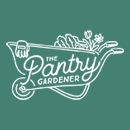I’ve always said that gardening is a project for optimists because no matter how many failures I have had, how many seeds don’t sprout or how many healthy plants become the food of neighbouring fauna, still each season I plant, tend the soil and hope that my hard work will pay off. I have been a gardener for nearly three decades and there is still more information for me to learn, more experiments for me to conduct, different ways of doing things. And how the ways of doing things have changed!
When I planted my first vegetable garden at the age of seventeen, I had no real idea of what I was doing. I cleared a patch of lawn in my parents’ backyard, tilled the soil, poked some seeds in the dirt… and had a surprisingly good harvest. I had no understanding of mulching or nutrients. I had no idea that carrots could be finicky to grow. I just set out with my Yates Garden Guide and some supermarket seeds and a whole bunch of optimism. Maybe it was because the climate wasn’t as harsh back then, or it was because the patch of lawn I chose used to be the compost corner, but my corn grew tall, my carrots grew deep, and my beans grew long.

Over the next thirty years I have tried to replicate that feat with varying degrees of success. At first, I was hindered by my reluctance to spend money. I also didn’t want to apply all those additives and fertilisers that my garden guide suggested. I put my progressive failures down to other things I was doing wrong. I didn’t want to spend all my time watering. I would begin a project then lose interest and the weeds would grow up. I didn’t research what plants grew best in our region. But there was a growing awareness that the growing medium counted. Really counted. I couldn’t just put plants in the dirt and expect them to grow. I couldn’t use just dirt and expect it to hold water.
I slowly learned through trial and error and came to the gradual conclusion that unless you are blessed with naturally good soil (that will eventually deplete itself if you don’t add back to it) organic matter in the soil was essential to both soil health and water retention. And having a garden is an ongoing project. But it doesn’t have to be expensive or time consuming. Add the leaves, add the manure and let all those organisms do the work for you. It’s a win-win situation!

Banner photograph by Gelgas Airlangga from Pexels: https://www.pexels.com/photo/shallow-focus-of-sprout-401213/

